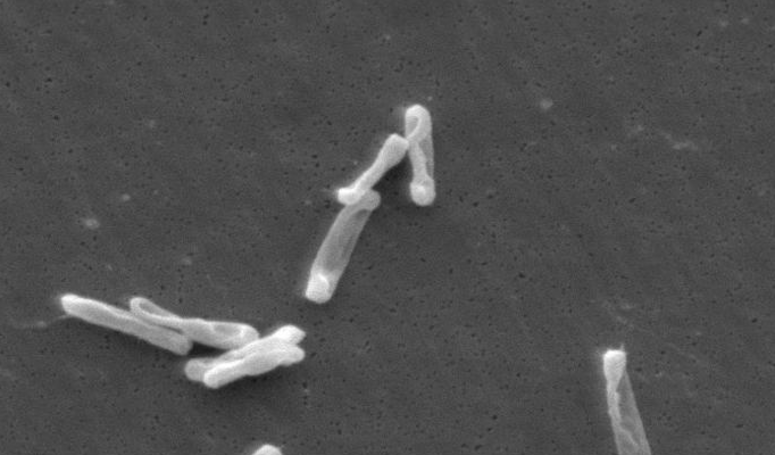March 5, 2018
11 ways UCalgary researchers are shaping Canadians' health-care future
Changing the patient-physician dynamic, empowering Indigenous communities, weaning arthritis patients off drugs, and filling the gaps in municipal water fluoridation knowledge: These are just some of the society-defining health initiatives researchers with the University of Calgary’s O’Brien Institute for Public Health at the Cumming School of Medicine (CSM) are tackling with the support of recently announced federal funding. Here are 11 new projects O’Brien Institute members are working on, with the help of recent Canadian Institutes of Health Research (CIHR) grants, as they continuously work to improve the health of Canadians and transform health care.
The impact of no water fluoridation
Building on previous work, Lindsay McLaren, PhD, and her team will examine longer-term associations between community water fluoridation and children’s tooth decay using the opportunity provided by the City of Calgary’s decision to cease fluoridation. The study will include a cost/benefit economic analysis and will also include the oral health of seniors living in long-term care facilities.

CIHR grant name: Community Water Fluoridation and Oral Health.
CromaConceptovisual licensed under Pixabay Creative Commons
Delerium in the ICU
Kirsten Fiest, PhD, and her team will tackle ICU delirium that manifests as confusion or inattention and can cause brain impairment. It can have negative effects, though it is challenging to diagnose. Family members may be the first to notice changes in patient cognition and behaviour. Her team will examine tools such as the FAM-CAM, which can be used by family members to measure delirium and, ultimately, improve patient care.

CIHR grant name: Family-Administered Delirium Detection in the Critically Ill.
Calleamanecer licensed under Wikimedia Commons
Cancer-fighting mom, healthy child?
Amy Metcalfe, PhD, and her colleagues will pull data from Alberta, British Columbia and Ontario to develop advanced statistical models to better understand the effects maternal cancer and cancer treatment during pregnancy has on the long-term health of children.

Impact of Maternal Cancer and In-Utero Exposure to Chemotherapy on Long-Term Child Health.
Digital Marketing Agency licensed under Pixabay Creative Commons
Caring for diabetes-stricken Indigenous patients
Lead investigator Dr. Lindsay Crowshoe and a team will examine outcomes of an Indigenous diabetes model of care, the Educating for Equity Canada (E4E) care framework, within Alberta Primary Care Network-affiliated primary care clinics. For this project, the team will also examine outcomes of the framework translated as a direct patient education model.

Educating for Equity: Indigenous Patient Empowerment Through Critical Education of Parents
stevepb licensed under Pixabay Creative Commons
The fight against a deadly bacteria
Aidan Hollis, PhD, is a principal investigator on a team that will examine the use of “near to patient” diagnostic tools for C. difficile, a bacteria that can spread from person to person and is a major cause of diarrhea in hospitals. Elderly suffer the most and in many cases this infection has led to death. Rapid diagnosis at the hospital rather than at a central laboratory facility may reduce or prevent these outcomes and save money.

C. difficile Near-Patient Testing Versus Centralized Laboratory Testing: A Cluster Randomized Trial.
phil.cdc.gov licensed under Wikimedia Commons
Can active living make for a better life after cancer?
Pictured below, left, Christine Friedenreich, PhD, and colleagues are recruiting newly diagnosed breast cancer patients to determine if physical activity can help them manage the side effects of treatment, enhance quality of life and improve survival after breast cancer. This research will contribute to developing clinical guidelines regarding how physical activity and health-related fitness can be incorporated into regular oncology practice.

CIHR grant name: Alberta Moving Beyond Breast Cancer (AMBER) Cohort Study.
Cumming School of Medicine
IQ academic achievement and steroids in infanthood
We know steroids can cause developmental problems when administered to premature infants, but Dr. David Johnson and his team want to conduct a long-term study to gauge the impact high-dose steroids have on typical infants. They will assess IQ, academic achievement and general development and compare with children who were not treated with steroids at a young age.

CIHR grant name: High-Dose Corticosteroid Treatment of Term Infants.
TawnyNina licensed by Pixabay Creative Commons
From childhood to adulthood for chronically ill kids
Dr. Susan Samuel and a group of researchers will evaluate the impact of a patient navigator service at Alberta Children's Hospital in Calgary, and Stollery Children's Hospital and Glenrose Rehabilitation Centre in Edmonton for the transition adolescents and young adults with chronic conditions face when they turn 18 and move on to adult care. The group will evaluate the patient experience, health-care utilization and determine the impact on health-care costs.

CIHR grant name: Evaluating Innovations in Transition to Adult Care: Transition Navigator Trial.
Robert Thivierge, stitched by Qyd, licensed under Wikimedia Commons
Better shopping, better life?
Dana Olstad, PhD, will lead a group of researchers and collect information from program participants about their eating behaviours, as well as their social and mental well-being before the coupon program begins and after it ends. The data could be used by other jurisdictions considering similar programs.

CIHR grant exploring the B.C. Farmers' Market Nutrition Coupon Program and low-income adult's diets.
tookapic licensed under Pixabay Creative Commons
Listening to patients' needs
Maria Santana, PhD, and her team will work to develop patient-centred quality indicators (PC-QIs), which would help ensure health-care systems remain responsive to the needs and preferences of patients. PC-QIs would ultimately drive care improvement with a longer-term goal of implementation across the health-care system in all patient care settings.

Including Patient Voice in Healthcare System Performance: Development of Patient-Centred Care.
sasint licensed under Pixabay Creative Commons
Bringing disease and drugs under control
Dr. Glen Hazlewood and his team will conduct a national study to determine whether it is possible to safely reduce medication for patients whose rheumatoid arthritis — a chronic autoimmune disease that affects about 300,000 Canadians — has been brought under control.

A Pragmatic Registry-Based Randomized Trial of Drug Tapering in Rheumatoid Arthritis.
MyArthirtis licensed under Flickr Creative Commons
Lindsay McLaren. PhD, is an associate professor in the Department of Community Health Sciences at the CSM. Kirsten Fiest, PhD, is an assistant professor in the departments of Community Health Sciences and Critical Care Medicine, and a member of the Hotchkiss Brain Institute at the CSM. Amy Metcalfe, PhD, is an assistant professor in the department of Obstetrics & Gynaecology, Community Health Sciences, and Medicine and is a member of the Alberta Children’s Hospital Research Institute (ACHRI) in the CSM. Dr. Susan Samuel is an associate professor in the departments of Paediatrics and Community Health Sciences and is a member of ACHRI in the CSM. Dr. Lindsay Crowshoe is an associate professor in the Department of Family Medicine at the CSM. Aidan Hollis is a professor in the Department of Economics at the Faculty of Arts. Christine Friedenreich, PhD, is the division head, preventive oncology at the Department of Oncology and is an adjunct professor in the Department of Community Health Sciences at the CSM and Faculty of Kinesiology. Friedenreich is also a member of the Arnie Charbonneau Cancer Institute at the CSM. Dr. David Johnson is a professor in the departments of Pediatrics, Physiology & Pharmacology and Emergency Medicine and a member of the ACHRI at the CSM. Dana Olstad, PhD, is an assistant professor in the department of Community Health Sciences and member of the Libin Cardiovascular Institute of Alberta in the CSM. Maria Santana, PhD, is an assistant research professor in the departments of Paediatrics and Community Health Sciences and holds membership in W21C Research and Innovation Centre, the ACHRI and the Libin Cardiovascular Institute of Alberta at the CSM. Dr. Glen Hazlewood is an assistant professor in the departments of Medicine and Community Health Sciences and a member of the McCaig Institute for Bone and Joint Health at the CSM.
